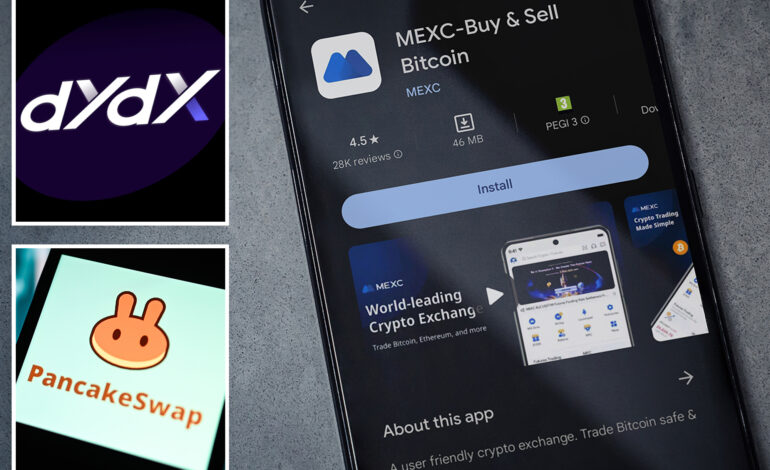No-KYC Crypto Exchanges Disrupt Wall Street with New Trading Model

The rise of no-KYC (Know Your Customer) cryptocurrency exchanges is reshaping trading on Wall Street, allowing users to buy and sell digital assets without revealing their identities. This trend emerges as mainstream platforms enforce stringent identity verification processes, including the submission of government-issued identification and personal information. The allure of no-KYC exchanges appeals to a growing number of traders eager for privacy and accessibility in the often volatile world of cryptocurrency.
Understanding No-KYC Exchanges
No-KYC exchanges, characterized by their lack of identity verification, enable users to engage in cryptocurrency trading simply by connecting a digital wallet. According to Kevin Keable, founder of Illinois-based Cipher Sanctum, “No-KYC means you don’t have to show ID to trade.” Prominent examples of these platforms include MEXC, Uniswap, PancakeSwap, and dYdX. Centralized exchanges like MEXC allow unverified users to trade, albeit with certain limitations, while decentralized protocols enable users to interact directly with their wallets.
The appeal is evident; users can bypass extensive paperwork and regulatory hurdles. In contrast to traditional exchanges that require documentation such as utility bills and passports, no-KYC platforms strip away these barriers, allowing for faster transactions.
The Risks and Considerations
While the benefits of no-KYC exchanges are attractive, they come with significant risks. Nic Puckrin, CEO of Coin Bureau, explains, “These platforms often sit in a legal grey area, making them vulnerable to shutdowns or seizures.” The anonymity provided by these exchanges, while appealing, is fraught with potential consequences, particularly for tax compliance. Legal experts caution that the IRS and other regulatory agencies have robust tracing capabilities, meaning that anonymity can be deceptive.
“Any American who fails to report capital gains from these platforms is committing tax fraud,” warns Darrell White, a partner at Kimura London & White LLP. Furthermore, traders can face challenges when attempting to withdraw funds into regulated financial institutions, as compliance officers may flag unexpected transactions.
Security is another concern. The decentralized nature of some platforms can expose users to hacking risks. “Different rules apply to them than if they were something like a traditional financial brokerage,” notes Steve Yelderman, general counsel at Etherealize.
Despite these challenges, demand for no-KYC exchanges continues to grow. Many users are motivated by the desire for privacy, particularly in light of frequent reports of data breaches. The ease of access is particularly beneficial in regions where banking services are limited or unclear, allowing individuals to trade without the typical hurdles.
Experts suggest that the current trend may not be sustainable. Dr. Dina El Mahdy, an associate professor of accounting at Morgan State University, predicts that regulatory scrutiny will likely increase as the cryptocurrency market expands. The total market capitalization of cryptocurrencies could reach $5 trillion within five years, prompting regulators to take a closer look at no-KYC platforms.
As the landscape evolves, the future of no-KYC exchanges remains uncertain. Regulatory actions could significantly impact their operation, and users may need to adapt to changing legal frameworks. For now, these exchanges operate much like underground markets, offering a degree of freedom that appeals to many in the cryptocurrency community.






